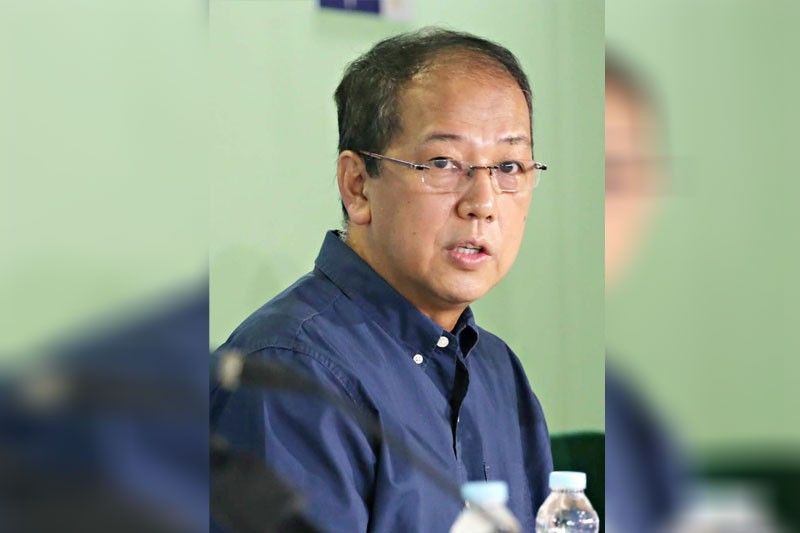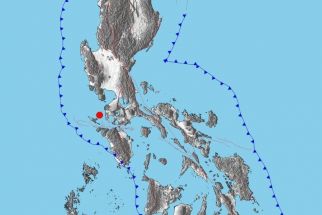Frontliners, security forces get vaccine priority

MANILA, Philippines — Health Secretary Francisco Duque III confirmed yesterday that the priorities for the coronavirus vaccines are health workers and frontliners from the Department of Education and Department of Social Welfare and Development.
He said the other priority groups are the members of the Bureau of Corrections, Bureau of Fire Protection, Bureau of Jail Management and Penology, Armed Forces of the Philippines and Philippine National Police.
“We also give priority to our poor countrymen, the indigent population and the vulnerable sectors and the senior citizens,” he pointed out.
According to Duque, the vaccines will not be administered to pregnant women because their pregnancies might be affected.
Carlito Galvez Jr., vaccine czar and chief implementer of COVID-19 response, said their target is to acquire some 50 million doses for 20 million people who will initially be given the vaccines.
Based on a zoning system, the priority areas for the vaccination program are those that have become the “epicenter of the pandemic” in the country.
These are the National Capital Region, Calabarzon, Central Luzon, Cebu, Davao City and Cagayan de Oro.
“We have been doing so many things to prepare for this. More or less, it will take six months to prepare. The best case scenario is to have the vaccines available in the country by May to July next year,” he said.
Galvez added they are using the ongoing immunization program of the Department of Health (DOH) against measles, rubella and polio as simulators for the COVID-19 vaccination activities.
Vaccine roadmap
President Duterte has approved the roadmap for the purchase and distribution of COVID-19 vaccines as part of the government’s efforts to revive the pandemic-battered economy.
Presidential spokesman Harry Roque said Duterte greenlighted the Philippine National Vaccine Roadmap during a meeting of the government’s pandemic task force last Thursday.
“The availability of the vaccine will be a game-changer – where we go from avoidance to actively minimizing the threat of the infection,” Roque said at a press briefing yesterday.
The roadmap is composed of seven stages – scientific evaluation and selection; access and acquisition; procurement and financing process; production, shipment and storage; distribution and deployment; implementation and nationwide vaccination; and assessment, evaluation and monitoring.
The government expects to fully organize the National Task Group on COVID-19 Vaccination, expand the panel of experts, analyze, select and buy vaccines, start clinical trials, complete bilateral and multilateral engagements and arrangements, and complete immunization logistics and services support plans by December.
The administration aims to complete the procurement process, production, shipment and storage of vaccines, hold early planning on distribution and deployment, complete implementation plans and evaluate and monitor the plans by the end of the first quarter of 2021.
Roque said the procurement service of the budget department would procure vaccines through various mechanisms allowed through bilateral, multilateral and other financial modalities. China and Russia are on top of the list of priorities for possible bilateral arrangements for the purchase of vaccines, a presentation distributed to the media showed.
Other countries in the priority list are the United States, Japan, South Korea, India, Israel, Singapore, Germany and other Association of Southeast Asian Nations (ASEAN) countries.
Tripartite arrangements are also being eyed with the United Kingdom and the business sector; a foreign government and a vaccine company; a vaccine company and the business sector; Indonesia and a vaccine company; and the United States and a vaccine company.
The multilateral modes being considered are pooled procurement with ASEAN countries and purchases arranged by the World Bank, Asian Development Bank, United Nations Children’s Fund and other groups. Roque said Duterte has ordered agencies to ensure equitable access for the poor and indigent.
Healthcare workers, the vulnerable population, the poor and indigents will be prioritized in the immunization. “All Filipinos should have the vaccine, without exception,” Roque said.
Sen. Bong Go, chair of the committee on health, called on the government to ensure the availability, accessibility and affordability of the COVID-19 vaccine, especially for the poor and vulnerable sectors.
During an interview after extending assistance to typhoon victims in San Pablo City, Laguna last Saturday, Go reiterated his commitment to introduce and push for measures that promote and protect the public’s health.
The senator authored and sponsored the Malasakit Centers Act of 2019 which was enacted into law late last year to provide convenient access to medical and financial assistance for poor and indigent patients.
Go also filed bills to improve access and strengthen healthcare services such as Senate Bill No. 398 which would expand the coverage of the existing mandatory basic immunization program of the government, and SBN 1226 which would ease the process for increasing the bed capacity and capabilities of DOH-run hospitals. He also expressed support for the designation of Galvez as vaccine czar.
Go stressed the need for a single chain of command to ensure the vaccine’s orderly and swift distribution to the public. As vaccine czar, the former military chief shall be primarily responsible for the purchase, negotiation, manufacture, production and distribution of the COVID-19 vaccine once it is available.
Galvez claimed that with the recent approval of the COVID-19 vaccine roadmap, the government is optimistic that a vaccine could be rolled out in the country between May or July of next year.
“We are looking if we will have a best-case scenario. By May or July we will have the vaccine rollout in the Philippines, but realistically, we can do that in two to three years,” Galvez said on Saturday during the graduation ceremony of Philippine National Police officers who completed their Public Safety Field Training.
He said 17 vaccine manufacturers from five to 10 countries worldwide are interested to have some form of arrangement with the Philippines for their potential vaccines against COVID-19.
According to Galvez, the vaccines are currently being evaluated by the Department of Science and Technology, DOH and the Vaccine Expert Panel.
“I was given a list by the expert panel and it included three vaccine companies from China, six from the United States, two from Russia, one from Germany, one from Japan, one from India, one from Israel and there are other countries,” he noted at a press briefing organized by the DOH.
Five of the 17 companies are already part of the GAVI COVID-19 Vaccine Global Access (COVAX) Facility, a mechanism that was designed to guarantee rapid, fair and equitable access to COVID-19 vaccines worldwide.
The COVAX Facility, which guarantees 20 percent of the vaccine demands of the Philippines, facilitates the clinical trials of participating candidate vaccines.
Galvez added Singapore, Australia, United Kingdom and India have offered to help the Philippines in the vaccine development and supply.
The COVAX clinical trials aim to accelerate the development and manufacture of COVID-19 vaccines based on the principle of equitable access for all nations.
Galvez expressed optimism that the government would acquire about 25 to 50 million vaccine doses by next year.
It is projected that about 1.4 billion vaccine doses or more will be made available by manufacturers by 2021 but it is expected that developed and rich countries will get the bulk of the vaccines.
Galvez said there are hundreds of candidate vaccines awaiting the WHO’s approval.
The government, he said, is focusing on the 17 candidates now in the advanced stages of trials and those which joined the WHO solidarity trials with the Philippines. – Alexis Romero, Jose Rodel Calapano
- Latest
- Trending

























